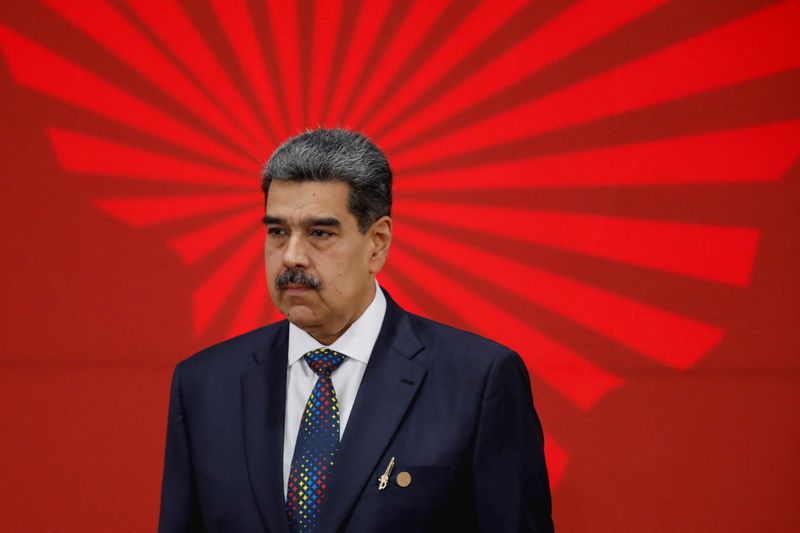Investing.com’s stocks of the week
MEXICO CITY/RIOHACHA, Colombia (Reuters) - Venezuelan migrant Mariangela Lozano longs for her homeland, but ahead of Friday's planned inauguration for President Nicolas Maduro's third term, she has begrudgingly opted to remain in Mexico and brave her meager living conditions.
"If Maduro weren't in government ... I'd be the first to return to Venezuela", Lozano said in December, a fortnight before Maduro's inauguration, following a contested election last July which saw both Maduro and opposition candidate Edmundo Gonzalez claim victory.
Gonzalez has been declared president-elect by several governments in the region. On Monday, U.S. President Joe Biden said Gonzalez was the "true winner" of the July 28 vote.
Lozano, who has a human resources degree from a university in Venezuela's Maracaibo, has been living for six months with her husband and children Lucia and Gustavo in a makeshift dwelling near a train crossing in northern Mexico City.
She barely earns anything by dyeing other migrants' hair while she waits for a U.S. consulate appointment she hopes will result in asylum.
Her story is hardly unique. Nearly 7.9 million Venezuelans are living outside their country of origin, the second largest displacement in the world, according to the International Organization for Migration (IOM).
Venezuela's economy in recent years has experienced aprolonged crisis marked by triple-digit inflation and broad U.S. sanctions leading to the exodus of millions of Venezuelans seeking better opportunities
Colombia is home to some 2.8 million Venezuelans, among them 38 year old Raydelys Coromoto.
Living in a ramshackle home of metal sheets, wood, and plastic in the Caribbean city of Riohacha, Coromoto runs a small market to support her family.
"Sometimes we spend the day without food. We only get enough for the children", said Coromoto, who fled to Colombia two months ago, seeking better health care for one of her children who suffers from multiple disabilities.
Others Venezuelans in Riohacha, like Abigail Suarez, echo Coromoto's sentiments. "The situation in Venezuela is very ugly," she said. "I wanted to have a different environment, a different home."
Despite the perils faced by migrants, the Venezuelan diaspora will continue to grow, said Donna Catalina Cabrera, a migration specialist at Javeriana University in Colombia.
"After the Christmas holidays and the beginning of the year and after Maduro's new term in Venezuela, people are going to leave the territory again looking for opportunities in other countries", Cabrera said.
Chile, already home to a large Venezuelan populations, may very well see those numbers increase.
At a refugee facility in Santiago, Venezuelans waited in line to be attended.
One woman, who asked not to be named, declared "I'm here seeking asylum, having fled my country."
(Reporting Alicia Fernandez in Mexico City, Camilo Cohecha in Riohacha and Rodrigo Gutierrez and Jorge Vega in Santiago; Writing by Raul Cortes; Editing by Michael Perry)
